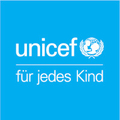In the run-up to the EU elections, children’s rights must remain a political focus.
Correction to OTS_20240219_OTS0021
Vienna/Brussels (OTS) – Rising poverty, deteriorating mental health, online sexual abuse and environmental pollution are among the challenges facing millions of children in the EU
Ahead of the crucial European Parliament elections, UNICEF calls on the European Union to protect and strengthen children’s rights
A new report from UNICEF highlights the problems facing children in European Union countries. These include increasing poverty, deteriorating mental health, online sexual abuse and environmental pollution.
The report published today “State of Children in the European Union 2024” shows that one in four children – 20 million children – are at risk of poverty or social exclusion in EU countries. This is an increase of one million children (note: this number has been corrected compared to the first broadcast) since 2019 in the EU’s leading poverty indicator.
The report shows that more than eleven million children and young people in the EU suffer from mental illness. Teenagers are most likely to suffer from mental illnesses such as anxiety and depression; a fifth of 15 to 19 year olds are affected. Although there is a lack of EU-wide data on mental health, the report finds that several countries have seen an increase in mental health problems among European young people during and since the COVID-19 pandemic.
Nearly one in 20 children are exposed to high levels of pesticide exposure, which can be particularly harmful to children and has been linked to adverse health effects and developmental delays. The report also notes that in 2019, the most recent year for which data is available, 472 children and young people in the EU died as a result of air pollution, most of them under one year old.
While rapid developments in digital technology provide children and young people with many opportunities, they also expose them to abuse, including hate speech, cyberbullying and sexual exploitation. The report highlights that 1 in 8 children aged 12 regularly receive unwanted sexual requests online.
„The EU has taken important steps to promote children’s rights – for example by adopting the EU Child Rights Strategy and the European Child Guarantee. Children and young people in Austria are also affected by child poverty, mental health issues, the effects of the climate crisis and risks in the digital world and can benefit greatly from a targeted EU strategy in these areas. It is therefore important to further systematically expand the focus on children’s rights both at the EU level and in the national implementation of EU measures so that children in Austria and the EU can develop their full potential
“, explains Christoph Jünger, Managing Director of UNICEF Austria.
UNICEF is publishing this report ahead of the European Parliament elections in June, after which a new five-year political cycle will begin to inform the EU’s vision for children and future generations – in particular the most vulnerable and disadvantaged children, including children with disabilities, Children living in poverty, refugee children and groups exposed to discrimination.
„The EU is one of the wealthiest regions in the world, but high rates of poverty and social exclusion, mental health problems, environmental pollution and numerous online risks are depriving millions of children of opportunities and undermining the potential of the EU’s youngest generations
” said Bertrand Bainvel, UNICEF representative to the EU institutions.
The report and accompanying policy papers, also published today, contain the latest available data and a number of recommendations to the EU:
- Maintain and accelerate recent progress on children’s rights and increase investment in essential services for children.
- Strengthening governance for children. The impact on children’s rights and future generations should be systematically taken into account in all EU policy decisions and legislation. The EU needs to improve its evidence base through a new EU data collection strategy that also includes children.
- Key leverage points impacting child poverty need to be addressed, including the implementation of the European Child Guarantee across the EU.
- Adopt a comprehensive, multi-year, cross-sector mental health strategy that is adequately resourced.
- Assessing the impact of the Green New Deal on children’s health and well-being in order to shape environmental legislation and policy accordingly.
- Updating and enforcing legislation to promote children’s safe use of digital technologies, bridging the digital divide and promoting digital skills.
Questions & Contact:
Michael Blauensteiner
blausteiner@unicef.at
+43 660 38 48 821
